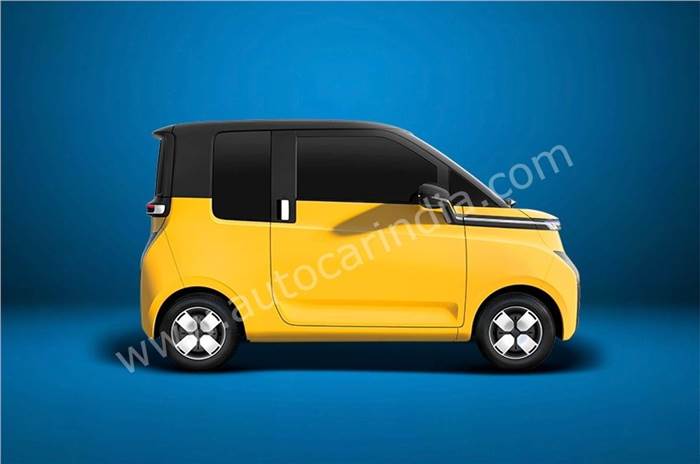At a time when the Tata Tiago EV is creating ripples in the Indian mass-market EV segment, MG Motor India is also readying its own contender around a similar price point. The MG City EV is expected to make its global debut early next year and will subsequently go on sale by around mid-2023.
- MG City EV launch by June 2023
- Annual production capacity at Halol plant now at 1,25,000 units
MG City EV unlikely to be cheapest electric car in country
The City EV will be the second electric offering from MG and is expected to go on sale around April-June 2023. This new model, as we've reported earlier, will be a compact two-door city car based on the Wuling Air EV, which is already on sale in markets like Indonesia. While its small size is likely to draw comparisons with the Tata Tiago EV, it won't necessarily be the cheapest electric passenger car in the country.
Rajeev Chaba, president and MD, MG Motor India, said, "We don't believe in giving the proposition of the cheapest car in its segment. Our focus rather is on offering good value along with contemporary technologies to our customers. We are looking at creating our own segment and providing a unique urban-mobility solution with our new EV."
To that end, the MG compact EV will be far more generously equipped, with the likes of a dual-screen infotainment system, featuring a pair of 10.25-inch screens – one touchscreen and the other as the instrument cluster. There will also be MG's full suite of connected car tech, an electronic parking brake and a rotary drive selector, among other things.
MG City EV to get upto 60 percent localised components
Another key advantage is the MG City EV's born-electric platform, which allows for far more space inside the otherwise small cabin, especially around the dashboard area. This is something that can't be done with an ICE-derived EV like the Tata Tiago EV, but there is a flipside.
Using an existing ICE architecture is a huge cost advantage, which is part of the reason Tata Motors could land on such a competitive price, whereas the MG's born-electric platform will have been developed anew, with some of that cost being passed on to the customer.
Some of that cost, however, will be offset by a high level of localisation. According to Chaba, it is imperative to localise EV components in India to reduce dependence on imports in the long run and that a locally assembled battery pack is a good point to begin with.
"In the first phase, we are definitely targeting a domestic value add of up to 60 percent at the start of production of our new EV," said Chaba. "We have to see that even the cells should be produced locally to reduce dependence on imports."
As reported earlier by us, MG will locally source the battery pack from Tata AutoComp.
MG to ramp up EV production in India
With overall sales of 1,591 units in the first half of FY2023 of its sole electric model, the ZS EV SUV, MG Motor India says it is now seeing improved supplies of components for EVs and is targeting to close the fiscal with sales of approximately 6,000 units.
"We are ramping up our EV production and reaching 500 units per month starting October, with projections of touching 700 units each in November and December. We will close the calendar with 5,000 units, which would be a marked 80 percent year-on-year improvement," said Chaba.
In the run up to the new model's launch, the company is also strengthening its production capacity at its Halol plant in Gujarat, and has recently completed an expansion from 60,000 annual units to 1,25,000.
The brand currently sells the Astor, the Hector and Hector Plus (facelift due soon) the ZS EV SUV and the Gloster SUV in the Indian market.
Also See:
MG Hector, Hector Plus, Astor prices hiked by up to Rs 28,000















.jpg&w=234&h=156&q=90&c=1)


Comments
Member Login
Personal Details
No comments yet. Be the first to comment.